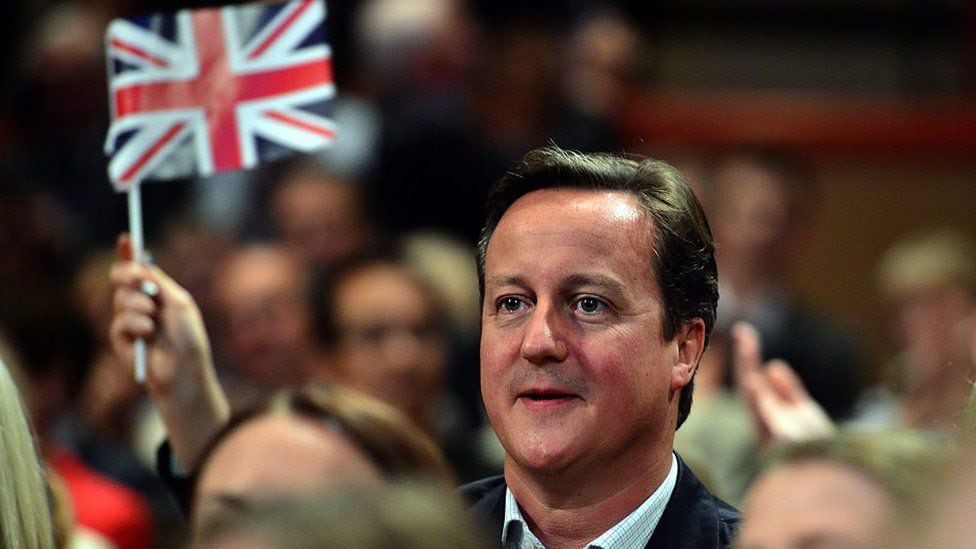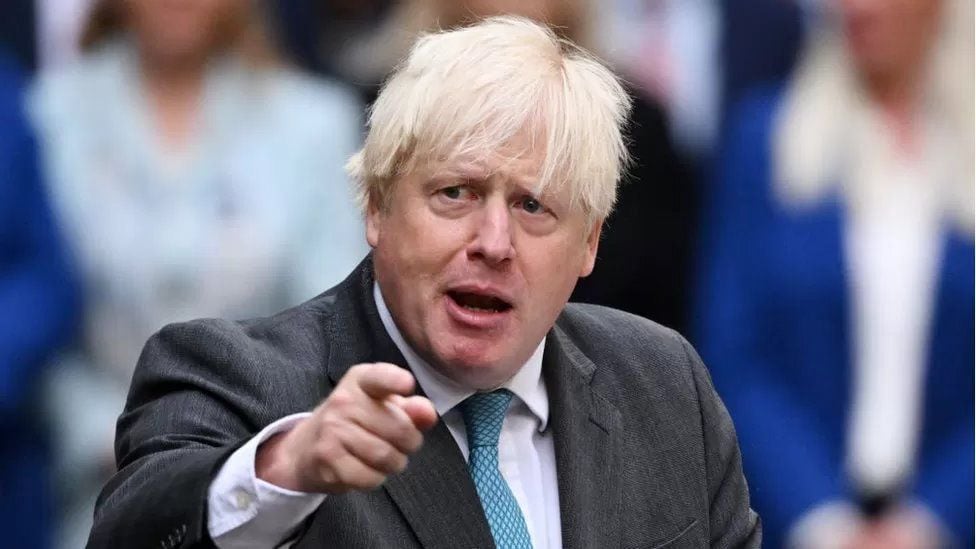United Kingdom It used to be considered a politically stable country, but with five prime ministers in six years, three of them in the last two months, something is clearly wrong inside Parliament in Westminster.
Since the UK general election in 2015, which was won by the Conservative Party, there have been multiple squatters at the Downing Street official residence.
LOOK: Prince Harry is devastated by an almost imperceptible detail in his military uniform
Before the arrival of the current prime minister, Rishi Sunak, Liz Truss resigned from the position she held for only 45 days, the shortest period in the country’s history.
Truss replaced Boris Johnson when he resigned in September, who in turn took over from Theresa May three years earlier in 2019.
May was appointed leader of the Conservative Party and prime minister when David Cameron announced his resignation in 2016.
What’s going on in Westiminster? Some analysts point to the deep divisions within the Conservative Party, which, six years after Brexit, the departure of the United Kingdom from the European Union, has failed to find the direction that this country should follow.
“Certainly to explain the instability of the Conservative Party and of British politics in general we have to go back to 2016, when they voted to leave the European Union”says Tim Bale, Professor of Politics at Queen Mary University of London and author of the book The Conservative Party after Brexit: Turmoil and Transformation (“The Conservative Party after Brexit: Turbulence and transformation”).
“Since then we haven’t really had a long period of stability,” he adds. “Maybe we haven’t seen as much chaos as we have in the last few weeks, but since (2016) we have experienced an inherently volatile situation“, the expert tells the BBC.
Miscalculation
Analysts say the biggest “turning point” in Britain’s recent political, economic and diplomatic history occurred in 2013, when then-Conservative Prime Minister David Cameron promised to hold a referendum on Britain’s membership of the Union. Union (EU) if your party won the next general election.
“Cameron’s decision to commit to the vote was not because the people of the country were demanding to vote, but because a significant minority of his own parliamentarians were demanding that he do so“, Professor Bale points out.
Some of these Conservative MPs felt threatened by the rise of UKIP, a populist, anti-European party that was gaining more and more supporters. Others were the eternal anti-European conservatives who were taking advantage of those fears to further their cause.
Cameron, who supported remaining in the EU, hoped that the referendum would put an end to this “civil war” within his party and keep the Conservatives in power. And he also thought that he could win.
But it was a daunting miscalculation.

As Professor Bale explains, Cameron lost for many reasons. But one of them was that he “underestimated the way in which the campaign in favor of leaving the EU was able to mobilize his supporters to go out and vote, even those who did not normally vote.”
The result not only exposed deep divisions among voters and within parties, but also changed the course of the country’s foreign, economic and trade policy.
Following the Brexit vote, it soon became clear that the architects of the project to leave the EU, including its most famous supporter, Boris Johnson, they had no real plan to unravel decades of ties economic, commercial and legal relations with Europe.
“After spending years pushing for Brexit or trying to prevent it, the British political establishment has no vision of the future of the UK after leaving the EU or how to achieve a significant role in the world,” says Professor Matthew Flinders, Professor of Politics at the University of Sheffield, England.
In British politics today there is a “lack of coherent national vision” about what you want to achieve and how you want to achieve it, says the expert. And this lack of consistent vision over the past decade in British politics, he adds, has resulted in a political vacuum.
“I believe that this political vacuum arose with Brexit“Professor Flinders tells BBC Mundo. “The United Kingdom had an empire. He lost an empire and found the EU. He left the EU and now he doesn’t really know where he’s going or why he should go anywhere.”
Disputes over Britain’s relationship with Europe within the Conservative Party existed decades before Brexit.
But leaving the EU revealed the different visions and opposing ideologies about the direction the country should take.

David Cameron had to resign after failing to persuade voters to stay in the EU. May was forced to resign when many within her party saw her as promoting a “soft Brexit” by being too conciliatory about the compromise Britain had to accept to leave the union.
And with Boris Johnson, who led the campaign to leave the EU, the hard-line conservatives who always advocated a “hard Brexit”.
Johnson, who came to power in July 2019 after May’s resignation, validated his leadership with a resounding victory in the general elections in December of that year, in which he won a large majority for his party.
Liz Truss also failed to unite her party with a clear vision of the country’s post-Brexit course.
And it doesn’t help the country either that it’s not just the party in power that is going through instability and uncertainty. Also the main opposition party, Labor, appears weak and without a clear purpose.
According to an early October YouGov poll when people were asked if they thought the Labor Party had a clear sense of purpose, only 34% answered yes.
The question many are now asking is whether the Conservatives will be able to decide which way the country should go and where Brexit should lead. And, above all, they question whether the country will be able to get out of this political chaos.
Until now this instability has damaged the country’s economy, its credibility in the markets and its reputation around the world.

As Professor Matthew Flinders of the University of Sheffield points out, the moment in which this political turbulence occurs in the UK is defined by volatility and uncertainty around the world, marked mainly by the consequences of the covid pandemic and the Vladimir war. Putin in Ukraine.
But also, he says, there a “systemic and structural” problem in the British system of government -a parliamentary system that favors bipartisanship- that “is not aligned with the needs of an increasingly diverse and progressive population”.
Will British politicians, in this context, be able to renew themselves and restore global credibility and the trust of their citizens?
“I would expect the renewal and the emergence of a new generation of politicians who were more adept at working in a digital context and who understood the need to forge new connections with the public,” the expert tells BBC Mundo.
“The big problem is that the (British) electoral system maintains a very immature style of politics, but neither of the two main parties intends to change it. This is the big ‘trap’ that no one really talks about. Could this enormous chaos focus attention on electoral reform? I doubt it”.
Source: Elcomercio
I, Ronald Payne, am a journalist and author who dedicated his life to telling the stories that need to be said. I have over 7 years of experience as a reporter and editor, covering everything from politics to business to crime.

:quality(75)/cloudfront-us-east-1.images.arcpublishing.com/elcomercio/GIZDANJNGEYC2MRXKQYDAORSGI.jpg)




:quality(75)/cloudfront-us-east-1.images.arcpublishing.com/elcomercio/Y5NNYXRIQBGSRM2WPQUKA7ZLFM.jpg)
